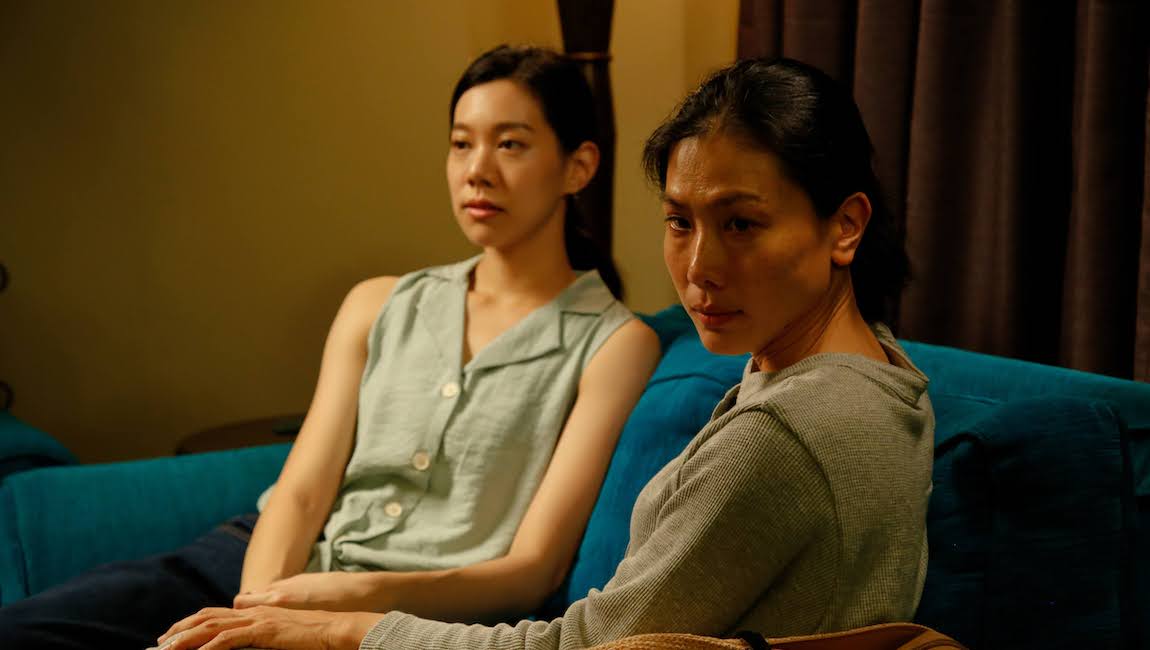Finnish director Aki Kaurismäki’s latest film Fallen Leaves is a continuation of his Proletariat series. The previous films — Shadows in Paradise (1986), Ariel (1988), and The Match Factory Girl (1990) — are known for their minimalism, their offbeat, almost farcical dry humor, and the characters’ Beckettian displays of doggedness in the face of absurdly dismal economic circumstances. Kaurismäki, perhaps, likes these working-class outcasts because a more poignant depiction of life can be mined from those who have never had the privilege of enjoying bourgeois illusions. There is no fluffy dreaminess here, no aspirational uplift. Kaurismäki’s aesthetic realms are harsh and hardscrabble, gritty to the point where the textures are almost tangible. That solidity enhances the realism, imbues it with an incontrovertible quality that is also the source of its sobering beauty. Fallen Leaves possesses all of these strengths, updating Kaurismäki’s typical concerns for the contemporary moment.
Ansa (Alma Pöysti) is a supermarket employee eking out a marginal existence in Helsinki. Holappa (Jussi Vatanen) is an equally lonely industrial worker struggling with an alcohol problem. The two wordlessly lock eyes out at a karaoke bar one night, unable to act. They later meet again and attempt a romance, encountering misunderstandings and disappointments along the way. This is the film’s general course, and Fallen Leaves proves mercifully brief in executing its vision, which, far from an indictment of the film, actually reflects its success. Kaurismäki’s depiction of Helsinki — both in this film and across his oeuvre — is unglamorously brutal. The natural light is often unflattering; shadows and blacks feel inescapably murky. The brighter hues found on walls and in articles of clothing don’t pop so much as struggle to resist the environment’s gloominess. There’s a stiffness to almost every human character on screen. Faces are often fixed in pensive, drained, and resigned expressions, as if the people who wear them are little more than passengers on a journey into deeper liminal oblivion. The abundance of medium and wide shots preclude proximity; we the audience are meant to observe rather than identify, as the usually static camera traps the viewer in this bleak slice of life along with the characters. Kaurismäki and crew’s graceful precision works to make the unrelenting coolness bearable, but inhabiting this prevailing mood is bearable for only so long. Yet we who only watch are simply temporary visitors — for the characters, this depressing zone is reality itself.
Immediately notable in Fallen Leaves is its dated look. The intentional ‘70s-style roughness harkens back to a previous cinematic and political era, while also selling the film’s cynical edge. Tube radios, rotary phones, and jukeboxes clunk along as best they can, and more current equipment — compressors, hoses, and laptop computers — are repeatedly referred to as shoddy. The new, then, is not an improvement upon the old. The anachronistic mixture of items bridges a sense of the past to an image of the present, as if to say the fundamental ills of the infrastructure previously built to deliver modernity’s prosperity have remained unaddressed. Kaurismäki himself would certainly argue that the sociopolitical system itself is an outdated machine and its working-class cogs are the ones who suffer the most. On the radios, both Ansa and Holappa listen to the reports of Ukrainians suffering at the hands of invading Russian forces, and these journalistic interjections cue us to the fact that, regardless of the visual style, this is a movie about our present time. A brief shot of a calendar indicates the in-narrative year is 2024, implying this is an alternate reality (the news about Ukraine actually took place in 2022), but unlike the parallel universes we are used to seeing on-screen, this one offers no real reprieve from the world we know. The misfortune of those with less power in our flawed societies is a multiversal constant. There is no escape from this truth, not through the novels Ansa reads, the comic books Holappa flips through, the films they see at the cinema, the songs they hear performed, nor in the copious amounts of nicotine and alcohol consumed. The world of Fallen Leaves can be likened to the cracked mirror Holappa has in his locker: irrevocably fragmented yet still revealingly familiar.
Ansa and Holappa’s relationship, lacking spark or spice, is quietly sweet. Their romance takes place in a deeply unromantic world where even their smallest gestures feel mechanical and laborious. As they are in a sense products of a dehumanizing environment, their arcs come off as somewhat subordinate to the subtler and broader themes that come into view when one considers the whole picture; there aren’t many intricacies in their dynamic to dissect. At times, it’s possible to wish that the dialogue between the two led to more intriguing disclosures. Rarely do we see cracks in their masks, and when we do, the feelings illuminated, though potent, are general. Such is the drawback of using individuals as analogs for the wider experience of a social class. Watching these two people, both stunted by isolation, take awkward stabs at achieving genuine, vulnerable connection is far from entertaining spectacle. Yet their emotionally incremental victories are very much the point. The ample deadpan humor should serve as a reminder that these struggling people are indeed still people capable of finding sources of levity and mirth. If immediate, radical transformation of their current context is impossible, then change comes from the resilient act of daring to claim the broader array of human joys despite that context. For this reason, Kaurismäki should not be considered a pessimist. His characters may know hardship, but they also seem to know that there’s always a chance their courage will be rewarded.
DIRECTOR: Aki Kaurismäki; CAST: Alma Pöysti, Jussi Vatanen, Janne Hyytiäinen, Alina Tomnikov; DISTRIBUTOR: MUBI; IN THEATERS: November 17; RUNTIME: 1 hr. 21 min.







